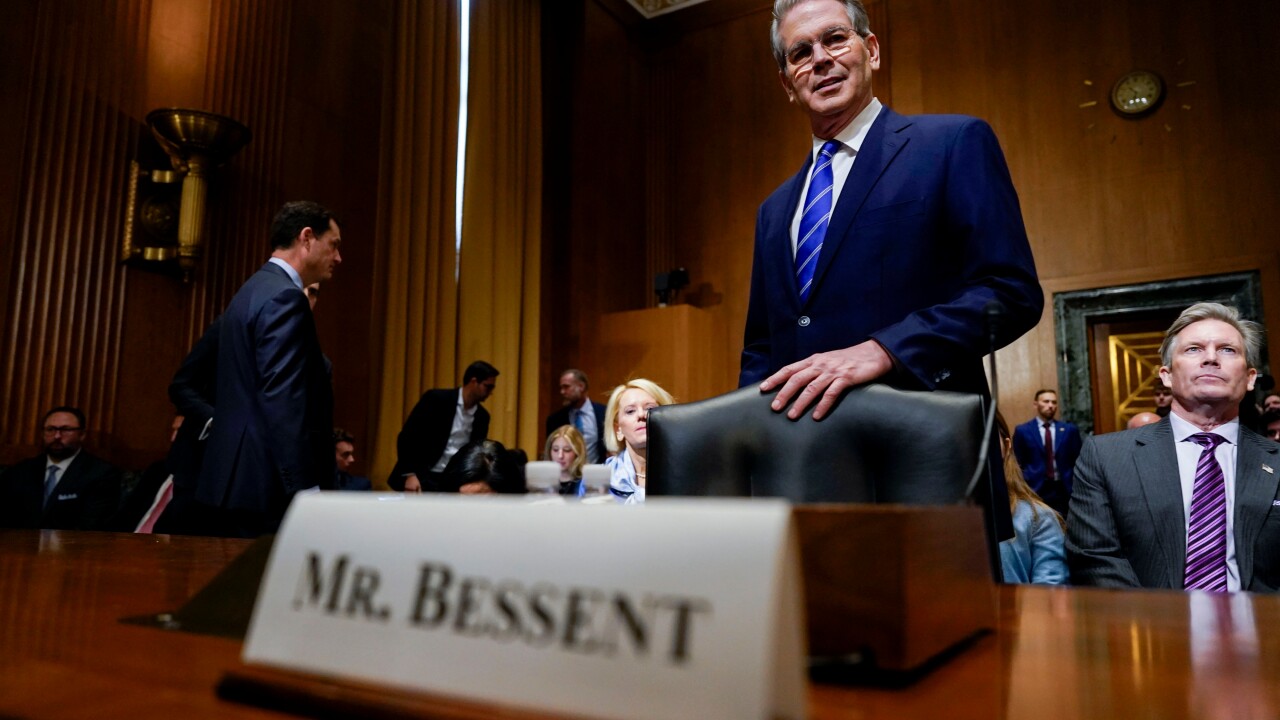Federal banking regulators are dismissing claims that they are pressuring banks to cut ties with payday lenders, arguing that the lenders' recent request for a court order against the agencies rests on erroneous speculation and bad legal arguments.
In late November, one of the nation's largest payday lending firms, Advance America, asked a judge to enjoin the Federal Deposit Insurance Corp., the Federal Reserve Board and the Office of the Comptroller of the Currency from informally pressuring banks to end their business relationships with payday lenders.
The request, which was joined by a payday lending trade group, followed U.S. Bancorp's recent decision to cut ties with Advance America. The Spartanburg, S.C.-based firm argued that regulatory pressure is the only logical reason that a bank would terminate a longtime, mutually beneficial business relationship without any warning or explanation.
But in court papers filed Thursday, the OCC, which is U.S. Bank's primary federal regulator, flatly denied the claim that it pressured the Minneapolis-based bank.
Serena Christenson, the OCC's examiner in charge of large bank supervision, stated that no one on her team pressured U.S. Bank to terminate its relationship with Advance America or with any other payday lenders.
"The bank did not inform me or anyone on my team that it was taking or planning to take any action with respect to Advance America," Christenson wrote in a court declaration.
Christenson added that she learned about U.S. Bank's decision from a news article in late November.
U.S. Bank did not immediately comment Friday on the matter.
The OCC also took issue with a recent statement to the court by Ed Lette, the CEO of Business Bank of Texas in Austin, who said that an assistant deputy comptroller in the OCC's San Antonio office recently pressured his $110 million-asset bank to end its relationship with a particular payday lender.
The OCC said that Lette's comments do not stand up to scrutiny when viewed in the context of the agency's recent supervision of Business Bank of Texas, including a July 2016 consent order that requires the bank to improve its anti-money laundering oversight.
In the court filings, the FDIC and the Fed joined the OCC in asking U.S. District Judge Gladys Kessler to deny the payday lenders' request for a court order.
"The proposed order is designed not to require due process, but rather to tie the regulators' hands and insulate the payday lending industry from the normal safety and soundness considerations applicable to all bank customers," the three agencies wrote.





